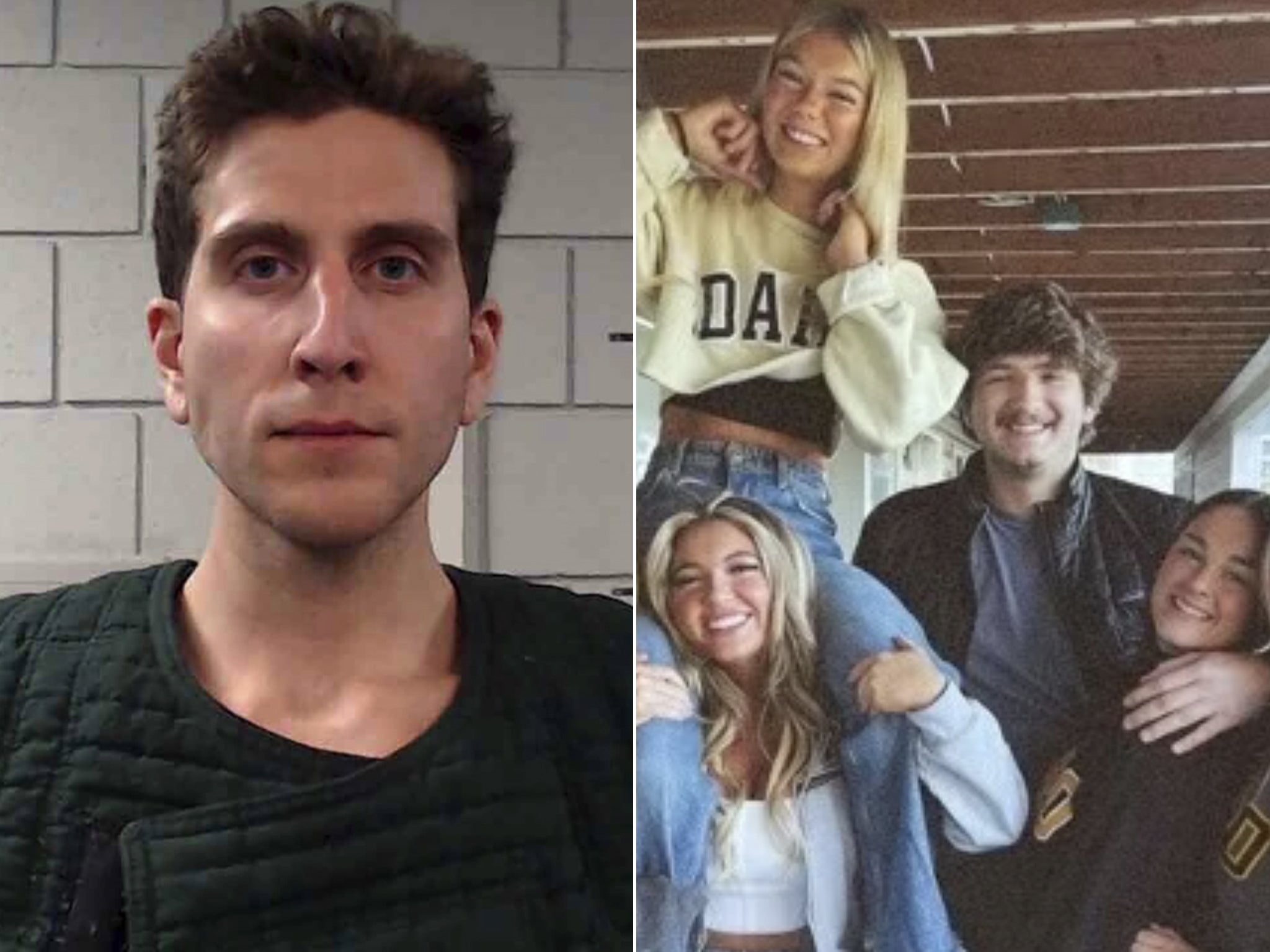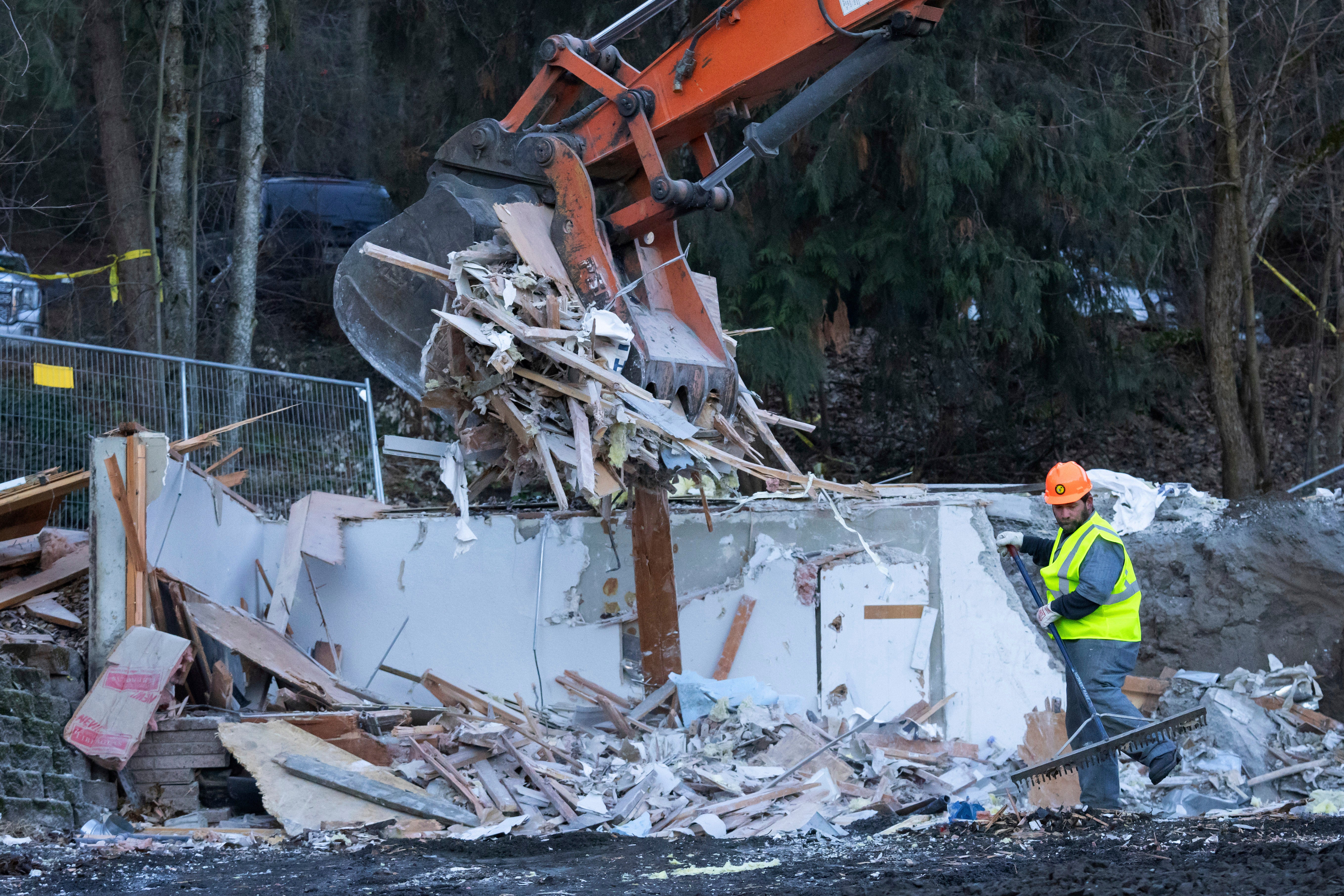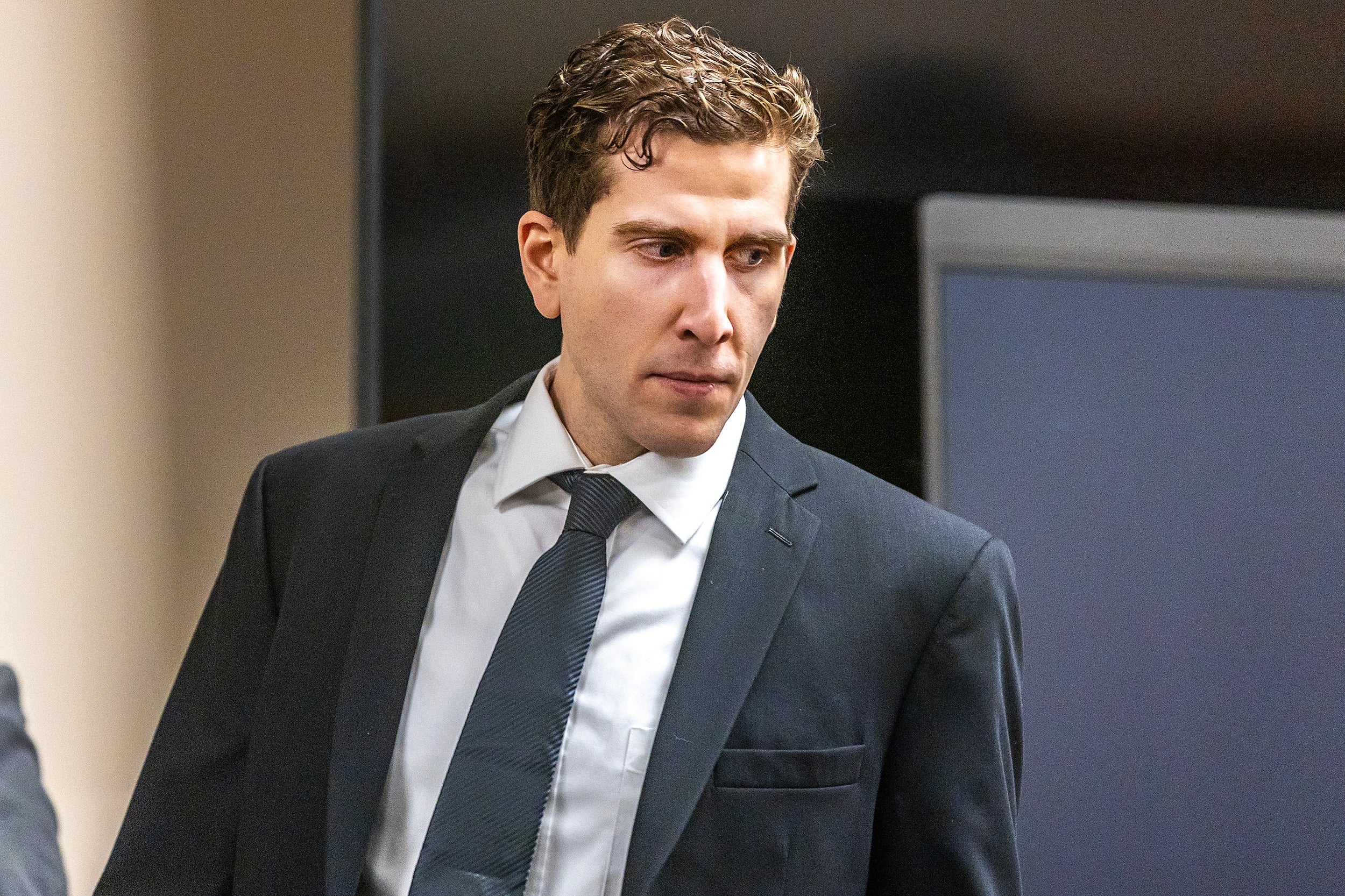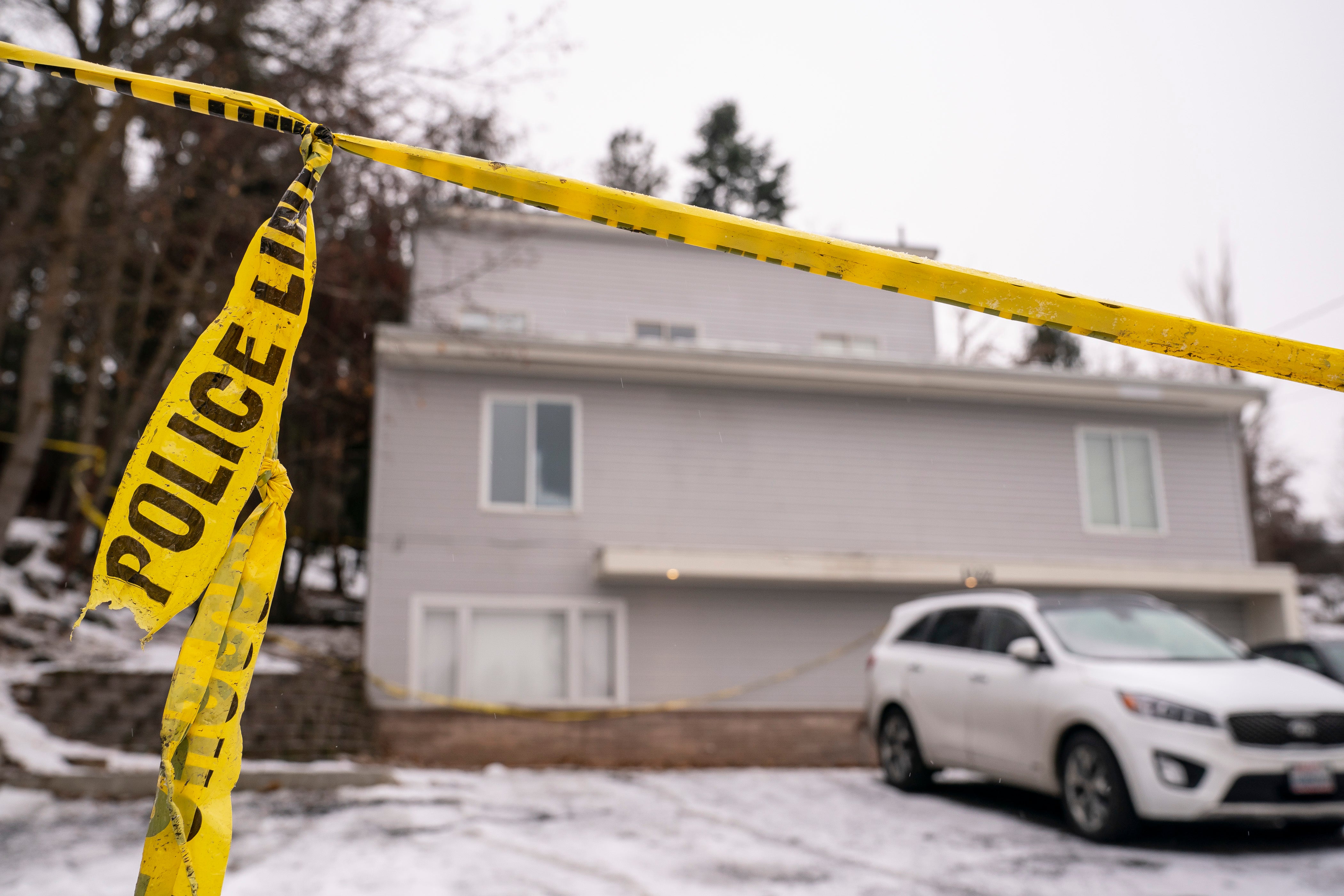Bryan Kohberger defense grills detective over newly revealed phone records in Idaho murders case
Phone records tracking Bryan Kohberger’s movements could make or break state’s case
Idaho murder suspect Bryan Kohberger appeared in a Latah County courtroom as part of his defense team’s efforts to compel prosecutors to reveal more of the evidence they plan to use in his upcoming trial.
The 29-year-old criminology PhD student is awaiting trial for the stabbing deaths of University of Idaho students Kaylee Goncalves, Madison Mogen, Xana Kernodle and Ethan Chapin, who were killed on November 13, 2022, at their off-campus house in Moscow.
Mr Kohberger’s defense team has claimed he was driving around looking at stars at the time of the murders and argue prosecutors have not handed all the evidence over for the defense to review, filing multiple motions to compel since Mr Kohberger’s arrest in late 2022.
As Mr Kohberger looked on in silence, his public defender Anne Taylor grilled Moscow Police Detective Lawrence Mowery about a series of records related to cell phone data police plan to use in the case.
Ms Taylor said her team had only learned about the records. which captures police work from 2023 analyzing the phone data, this Wednesday.

“Those were things that existed for quite some time, is that correct?” she asked, later adding, “I want to know all the records you relied on, all of the emails, all the conversations you relied on to produce this thing.”
During his testimony, Detective Lawrence Mowery pushed back against the suggestion police were hiding something.
He described how the records merely show he was called upon in the spring of 2023 to analyze phone records using a data visualization program called CASTViz, information that was later presented to a grand jury.
The detective said that even though he didn’t save his work, the analysis could be quickly recreated.
“I didn’t delete anything,” he said, adding, “I can open the software, drag the CDRs [call detail records] back in, and in a very short time it’s generated.”

The hearing also concerned police efforts to look for evidence on Idaho transit cameras and windy.com, a weather site that temporarily displays shots from state transit feeds. The detective said that while police consulted these feeds as potential sources of evidence, they didn’t retain anything of value in the case.
Thursday’s hearing ended without a ruling on the motion to compel, and further proceedings are scheduled for 30 May, which will feature testimony from Leah Larkin and Bicka Barlow, two DNA experts called by the defense.
The wider evidence at issue in the case reportedly includes dashcam footage, video and audio recordings of a white sedan at the crime scene, and lab testing results – information police used to arrest Kohberger seven weeks after the murders.
Kohberger’s attorney said at a hearing earlier this month that the prosecutors are withholding evidence that the defense team should be privy to.
“The state knows full well what they have and what they’re withholding from us,” Ms Taylor said at the hearing. “We don’t know what they’re going to show, but we know they exist.”

The prosecution has argued it’s doing all it can to share evidence but is partially being delayed by federal rules, given the FBI’s involvement in the underlying investigation.
“The characterization that we’re just consciously withholding information to frustrate the defense is utter nonsense,” Latah County Prosecutor Bill Thompson said at a hearing earlier this month.
“They [the FBI] have been good partners, but they have their own rules to work with,” he added.
Kohberger was linked to the murders that rocked the college town of Moscow through DNA evidence, cell phone data, an eyewitness account and his white Hyundai Elantra.
But his team claims their client was out driving in the early morning hours of the night of the murders, and that he was in Pullman, which is about eight miles west of the 1122 King Road home.
“Mr Kohberger was out driving in the early morning hours of November 13, 2022; as he often did to hike and run and/or see the moon and stars,” Ms Taylor, the defense attorney, wrote in the court documents. “He drove throughout the area south of Pullman, Washington, west of Moscow, Idaho including Wawawai Park.”

In May 2023, Kohberger declined to enter a plea in the case, prompting the judge to enter his plea as not guilty.
Earlier this year, the Idaho Supreme Court denied a request from Kohberger for his grand jury indictment to be thrown out, citing a biased grand jury, inadmissible evidence and prosecutorial misconduct. But the Judge denied the motion.
Prosecutors say they will seek the death penalty if he is convicted.
A trial date has not yet been set.
Bookmark popover
Removed from bookmarks